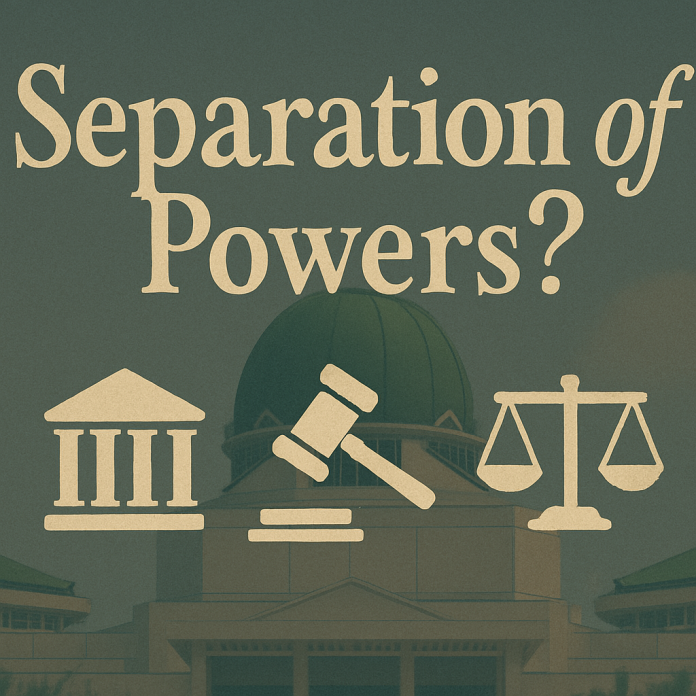By Newspot Nigeria
When American political scientist James Q. Wilson posed the question “Does the Separation of Powers Still Work?”, he may not have had Nigeria in mind—but his reflections resonate deeply here. As frustration with governance grows across democracies, Wilson’s answer stands out: Yes, separation of powers still works—but only when we understand and uphold the principles behind it.
A System Designed to Restrain, Not Rush
Wilson’s core argument is refreshingly countercultural: democratic systems are not meant to be fast; they are meant to be fair and restrained. The U.S. Constitution spreads authority across the executive, legislative, and judicial branches, not to promote efficiency, but to prevent abuse of power. In doing so, it ensures no single arm can act unilaterally, especially on matters that affect millions.
In contexts like Nigeria—where power is often centralized and personalized—this principle remains vital. Institutions, not personalities, should be the anchors of democracy.
Wilson’s Core Strengths
Wilson’s argument is convincing on multiple fronts.
First, his historical reach shows that the tension between branches of government isn’t new. Even powerful U.S. presidents—from Roosevelt to Reagan—struggled with how limiting the system could be.
Second, he uses data-driven comparisons to challenge assumptions that parliamentary systems are inherently more efficient. In fact, many such democracies run higher deficits and face their own governance bottlenecks.
Third, he offers practical insights, encouraging reform through better internal procedures rather than through drastic constitutional overhauls.
A Missed Layer: The Role of Public Culture
Still, Wilson’s analysis assumes a political environment where public service is generally rooted in civic responsibility. But in places like Nigeria, institutional structures can only do so much if the underlying culture doesn’t support them.
In too many cases, public decisions are influenced by personal recognition or material gain. Whether it’s the desire to be named on a project or the pursuit of patronage benefits, public interest is sometimes subordinated to personal incentives. This isn’t just about corruption—it reflects a broader need to rebuild a culture where doing the right thing is its own reward.
Strengthening separation of powers must go hand-in-hand with fostering a sense of duty, transparency, and accountability across all levels of leadership and public service.
Lessons for Nigeria
If Nigeria is to thrive democratically, we must move away from the idea that national progress depends on the will of a single individual. The separation of powers teaches us that lasting progress comes from strong, coordinated institutions—not concentrated power.
That journey begins with trust—trust in our laws, in our systems, and in ourselves. And that trust must be earned through consistent, visible commitment to integrity from all sides of government.
Final Word
Wilson’s case is not just about governance structure—it’s about governance character. The separation of powers slows things down, yes—but it does so to ensure no one voice dominates, and no one interest prevails unchecked. That’s not dysfunction; that’s democracy.
At Newspot Nigeria, we believe that building a better country isn’t only about reforming laws—but also about renewing values. Systems are only as strong as the people who uphold them. And that strength must begin with all of us.
 Loading...
Loading...
Share your story or advertise with us: Whatsapp: +2347068606071 Email: info@newspotng.com

















